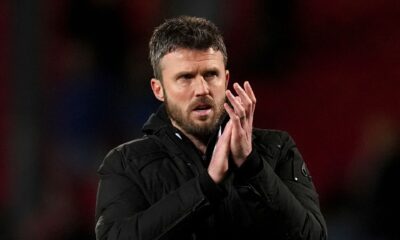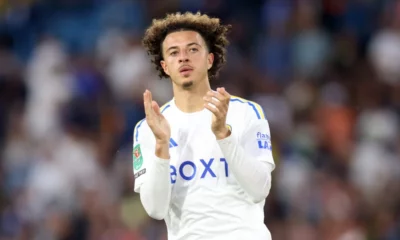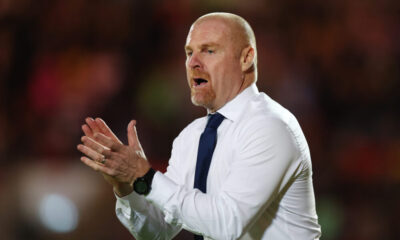Other Football News
UK vs Europe: Comparing Football Coaching Methods
We take a look at the different ways in which football is coached in Europe compared to the UK. Here are our findings.
Other European Nations
One thing that struck me when visiting the European clubs was their openness & welcome they offered. Especially in Holland, a nation with ‘no secrets’ that wanted to work with all coaches. The relationship from professional football clubs to grassroots clubs seemed so much closer. Yet listening to the pro coaches the concept was simple & refreshing. At PSV Eindhoven they informed us that they had links with a number of grassroots clubs, as do all Dutch Pro clubs. They regularly visit the clubs & offer coach education & session plans. This helps the grass-root football coaches deliver better sessions & in turn help develop better players. The junior clubs know exactly the level of player that the senior clubs require as they visit the academy on a regular basis. So when they feel they have a talent they contact the club to come & watch them.
At PSV Eindhoven the Academy Director gave us a presentation on the blue print to their academy! On another visit the first team manager talked to us for 30 minutes. Players posed for photos, signed autographs. In fact at the PSV training complex they are happy for coaches & fans to visit. On my last visit I sat drinking a coffee while watching the first team train only yards away!
The academy players are transported from their homes to the training complex & school. This offers opportunity for them to train twice a day without missing out on their education. I watched the pre development squad train. It happened to be their last session of the season. After the session they were all given a signed poster from the first team & a letter from the club. My Dutch friend translated the letter. It was coming direct from PSV Eindhoven thanking them (the player) & the parent for their commitment & hard work. I found this so refreshing, a top European club thanking the child & the parent!
Portugal
Although it is common for these pro clubs in Europe to be so respectful toward the player & parent. My good friend, Hugo Vicente (ex Benfica & now assistant academy director of SC Braga), explained that without the parent they don’t have the child so the respect is there. Although I often remember some of the great stories his Benfica Academy Director got up to.
In a staff training meeting he brought one of the staff up to the front & slapped him on the face. The dazed coach looked at him as he said, ‘you weren’t expecting that’! As he went to slap his face again the coach was ready for him so this time he kicked him! The member of staff received a slap on the face then a kick to the leg! Why? This was his way of asking his coaches to preach to their players that he wanted them to play with creativity, to improvise, to play with surprise! Simply put if a player always attempts the same skill there is no element of surprise for the opposition & they can prepare to expect it. But the coach who was hit on the face was expecting the same thing again as the hand moved toward him then in a split second he got kicked! Expect the unexpected!?
The same Academy Director had a novel way of dealing with parents shouting from the touch line telling their kids what to do. In England the parents are told to stand behind a piece of rope normally 50 yards away from the pitch. In Portugal it is different. If a parent shouts or tries to coach their son they simply sub their child! This way the club don’t need to speak to the parent the kid does it for them as they don’t want to be replaced. Although on one occasion they had a repeat ‘offender’. The Benfica AD went up to the father before kick off & passed him a Playstation remote control. The puzzled parent looked at him & was told, ‘If you want your kid to shoot press the ‘X’ button, hit ‘O’ for pass & the ‘triangle’ for tackle…now shut up’! Brilliant!
 Juggling education & training can be a challenge
Juggling education & training can be a challenge
Summary
The first thing that I picked up on from my first visit to this club was the family feel it had. Everyone greeted each other with a welcome, smile & hand shake. This is very positive & creates a real togetherness. The set-up is very impressive. All sessions concentrated heavily on the technical side of the game. This includes use of the ball along with pressurised drills & sessions.
The big difference I feel is the interest they take in each individual child. The club record everything from school work to eating habits & from training to simply monitoring their height, weight & rest. Also for the players living away from home. The effort they put into for accommodation, transport & duty of care. Then the long term development & future of the child is put as most importance with every last detail thought of – even if they unfortunately have to let a player go.
It was nice to sit & have a meal with one of the players at this age group. I found all the Braga Academy players to be confident young players that behaved & worked very hard in all sessions & games.
Europe v UK
Overall I think the relationship with grassroots & professional clubs is so much closer throughout Europe. England at times can seem to have a massive gap in that respect. The focus on football drills, ball work, dribbling & small sided games is evident but to be fair England are now rolling out a programme right down to grassroots to focus on this. I feel the major problem will be converting the old school at the bottom.
Data from the 2008 UEFA Coaching Convention shows that England has 1,759 B Licence coaches, 895 A Licence coaches & 115 Pro Licence coaches. France has 15,000 (B), 2.400 (A) & 188 (Pro). Spain has 9,135 (B), 12,720 (A) & 2,140 (Pro). While Germany has 28,400 (B), 5,500 (A) & 1,070 (Pro). Although the FA’s acclaimed & highly respected Nick Levett has responded to say that each Football Association roughly develop the same amount of coaches per annum & that the results weren’t realistic, i.e. The Spanish apparently awarded many 70 year olds with their B Licence who most likely no longer coach.
At the same time the UK has a mentality of having 8 mini clubs within each club. Although they share the same identity through badge & colours they compete against each other rather than forming a strong youth system. There are many stories of parents falling out with coaches & taking their son away & starting their own club! I feel there is too many clubs which result in too many unqualified coaches resulting in a poor youth education for the player.
In Holland they generally only have 1 or 2 clubs for each village or town. Many clubs with have 100 teams within their set up. Rather than U9, U10, U11, etc. They have A, B, C, D, E, F & G. ‘G’ being U10 but they could have 10 teams at that age group, i.e. G1, G2, G3, G4, etc. G1-G3 teams will be the most developed kids playing against other clubs G1-G3 teams. While G7-G10 will be the late developers, the recreation players, etc. who will play against players there only level. This means the Dutch will very rarely have a game that will finish with more than a 3 goal deficit. They also play with a lighter ball on reduced playing fields. They have 15 & 16 year olds refereeing the games while parents use the games as a social event.
When I took my academy team over to Holland many of my parents were shocked that the kids played in such a relaxed atmosphere. The main voice you could here was the children’s voices. Parents stood & chatted while watching the game. All the clubs ask in return is what can you offer when you register your child. They mean what time can you offer. You could have someone volunteering 4 hours per week that will simply assist with kit or working in the bar area.
I can’t stress enough, if you are a football coach you need to visit Holland to see what I mean. The Dutch are so organised & the club we visited hosted over 50 games on that Saturday! This was from children to seniors including women’s & an over 65’s team!
The coaching style across Europe is simple. They encourage the players to think for themselves & let the small sided game be the teacher. They get away from the ‘stop / stand still’ tactic to coaching within the game & summarizing at the end.
Setting up Football Coaching Equipment
The Future
Certainly it is not all doom & gloom. Manchester United are renowned for their way of thinking. When they play 8 v 8 they will ask the opposition can their 4 subs play Manchester United’s 4 subs a 4 v 4 game so everyone is involved. The focus on the technical side of the game is improving at all levels.
A recent visit to Watford FC & the Harefield Academy was very refreshing. Nick Cox is the Watford Academy Director. It is very interesting listening to Nick & seeing the thought process & the importance of everyone at the club to the school backing the concept. The typical English Academy system will have boys going to school as normal then returning home to start homework, eat dinner & then to be transported by a parent to training. This adds a busy schedule to each individual boy & adds pressure to the family life. It is not uncommon for a father to return home from work early & to eat on the way to take his son to training. Nor is it uncommon for that child to be up at 7.30am on the morning & on the go all day to 9.30-11pm at night.
Watford made many visits to European Academies to see what suited them best to move forward as a club. The Dutch Academy set up was one of choice, especially a club called Willem II. They have a similar set up in terms of stadium size, club structure, fan base, etc. The big difference in the Academy structure was the club would work in partnership with a school. This is what Watford FC based their concept on. Although it was not copying the Dutch club they would simply set up an academy to best suit Watford FC & their Academy players.
The main positives for club, school & player include;
- Increased contact time for football training with the boys. From an average of 3,500 hours to 9,000 hours (approx 10-12 hours per week but up to 15 hours available)
- Greater Academic support & discipline – less conflict between school & club.
- Prime time training – day light & on grass (indoor 3G dome available too)
- Better home lifestyle – more family time with less inpact, i.e. transport & finance.
- Professional lifestyle – more training, less late nights, regular meals, less hectic.
- Better relationship with players – get to know them better.
- Optimum time for education & sport.
So you can see as a nation we are moving forward. It wasn’t so long ago that Manchester United produced Ryan Giggs, Paul Scholes, David Beckham, Gary Neville, Phil Neville & Nicky Butt. Although important to research other nations & see what they are doing it is important to find the right formula that suits the UK. For me a closer link to grassroots & more contact time to players is a massive start along with more qualified coaches & focus on CPD.
Tim Wareing is a regular writer for The Soccer Store. You can view is training sessions at TrainingSoccer.Org






















